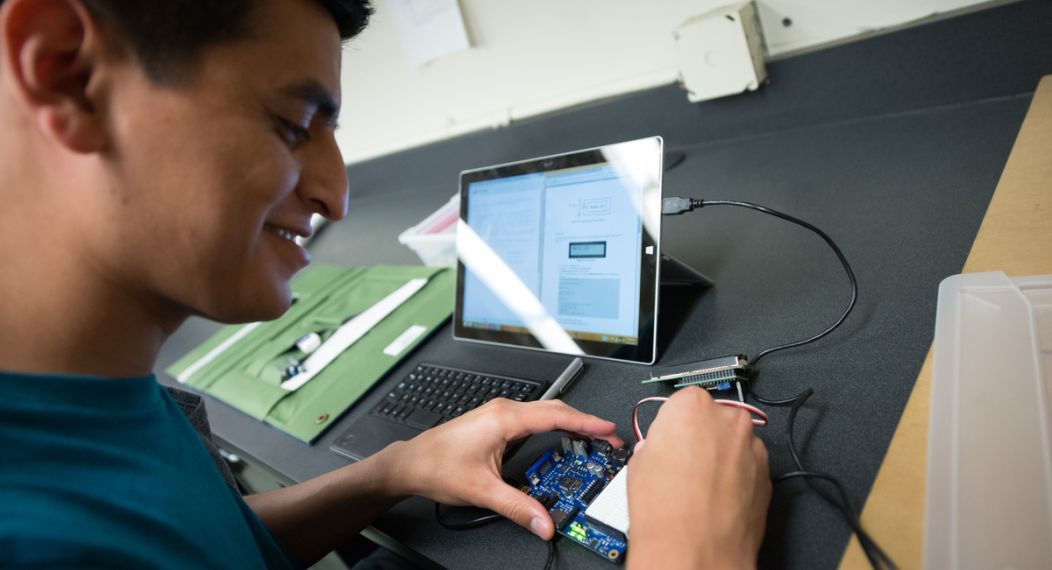Session 1
Mobile Robotics
Let the robot move with hands-on experiences
The course introduces students to mobile robotics which can be seen in many areas such as vacuum cleaning robots (iRobot Roomba), delivering foods at restaurants, moving packages at warehouses like Amazon fulfillment Center, self-driving mobile vehicles, medical service robots that deliver materials to save lives and to communicate between doctors and patients and the military.
Mobile robotics depends on locomotion (propelling to move such as electric motors) and perception (sensing technology). You will learn about basic electronics, electrical circuits for testing sensors, and basic programming (C/C++) to control robot propulsion to achieve goals such as line tracking, obstacle avoidance, object following or vision sensing for obtaining goals used in many applications.





